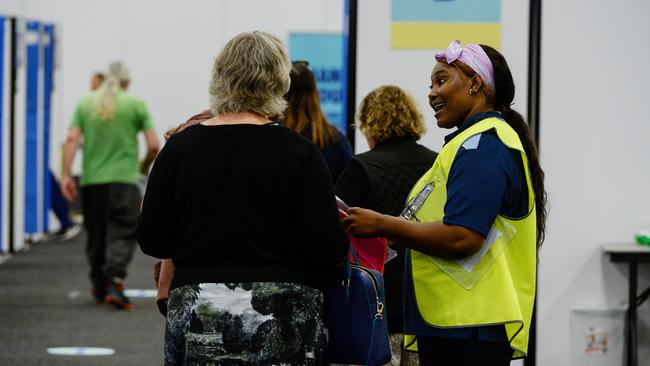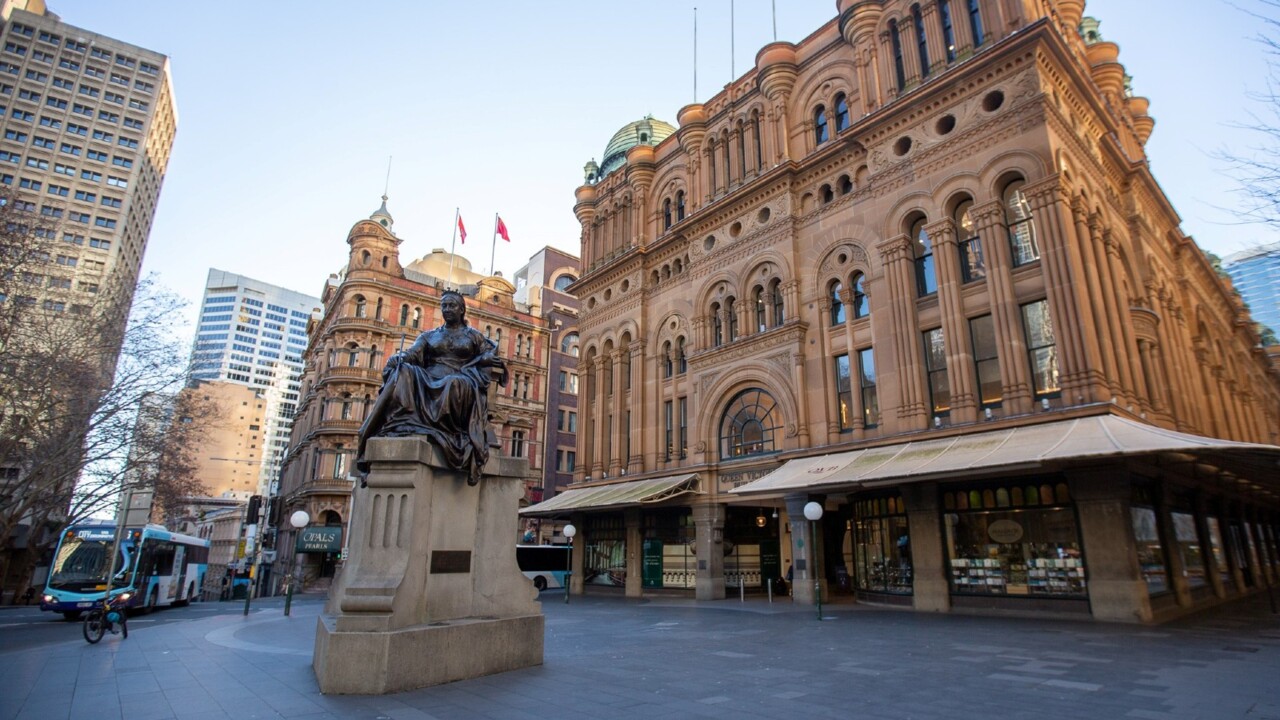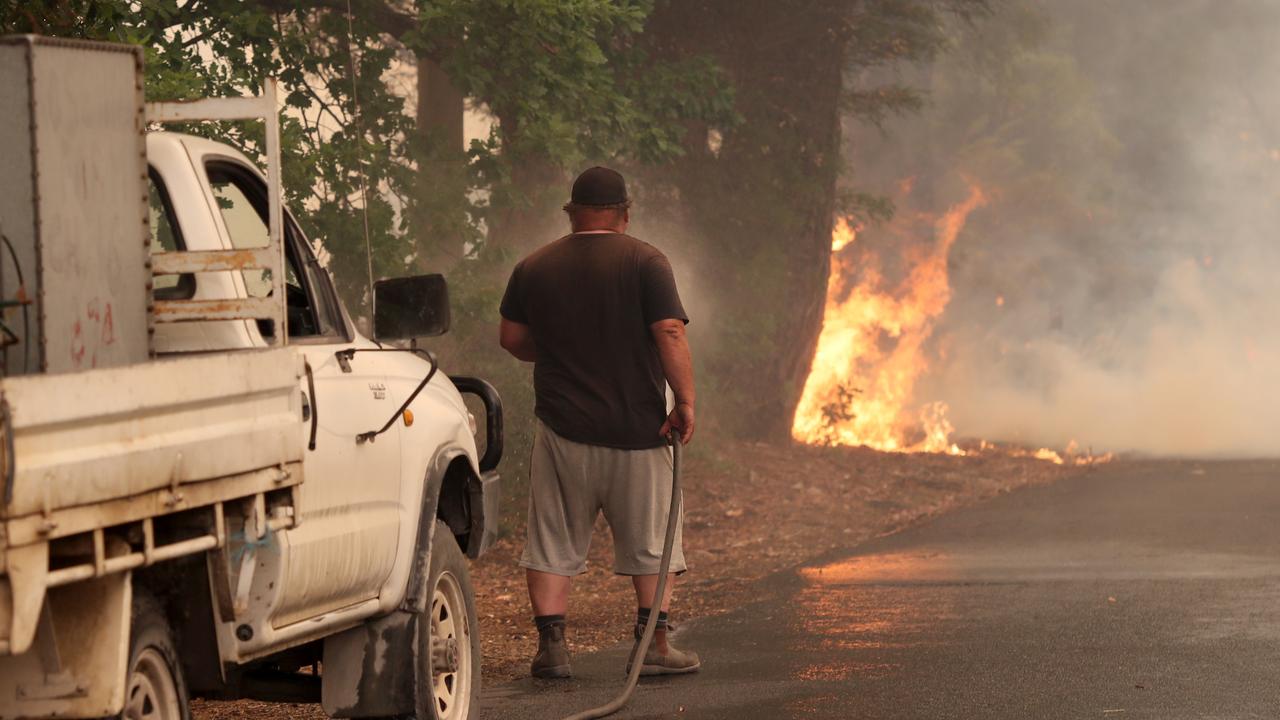Tory Shepherd: People will suffer no matter how we free ourselves of Covid-19
Once it was the oldies at risk of being thrown under the Covid-bus. Now it’s the kids and anyone else who can’t get vaccinated, writes Tory Shepherd.

Coronavirus
Don't miss out on the headlines from Coronavirus. Followed categories will be added to My News.
It doesn’t seem that long ago some people were talking about throwing the oldies under the bus so we can get back to “normal” life.
Now it’s the kids, and anyone else who can’t get a jab yet.
A year and a half into this pandemic and the frustration at lockdowns is rising faster than a loaf of sourdough. But we still don’t know the magic number that will get us out of this cycle. What percentage of people have to be vaccinated before we can again roam free?
Some epidemiologists say 80 per cent is the target figure. Former deputy chief medical officer Nick Coatsworth – face of the federal government’s coronavirus ads – says 50 per cent could do it. Deakin University epidemiologist Catherine Bennett says about 30 per cent. Nationals Senator Matt Canavan says right about now is fine. (While there are other ways we can keep people safe, it’s the vaccinations that are at the heart of it.)
An ethical standpoint would be to open up when everyone has had an opportunity to get vaccinated, surely, not while aged-care workers, people with disabilities, and anyone under the age of 40 are left sitting like shags on rocks.
But even that’s tricky. Do we throw the vaccine hesitant to the wolves? What about the elderly too frail to vaccinate? Australian society’s pockets are full of vulnerable people who could be left exposed.

Decisions about ending lockdowns, and about opening state and national borders, will inevitably involve some kind of human sacrifice. What level of sacrifice will we be happy with?
American writer Ursula Le Guin explored the idea of how willing we might be to sacrifice others for our own happiness. In The Ones Who Walk Away From Omelas she describes a beautiful harbourside town.
Bright air, music, dancing, a dark blue sky and broad green meadows. The people are happy, and free. There might be orgies, for those who want them, or drugs.
“A boundless and generous contentment, a magnanimous triumph felt not against some outer splendour of the world’s summer: this is what swells the hearts of the people of Omelas, and the victory they celebrate is that of life,” she writes of this (supposed) utopia.
But in a basement under the town, in a tiny dirty room, is a child. A “feeble-minded” child (her word, and an offensive one now).
The child is alone, it is afraid, it sits in its own excrement. Sometimes the people of Omelas come to kick it, or stare at it. They quickly fill its food bowl and water jug before disappearing.
“I will be good,” it pleads. “Please let me out, I will be good”. The citizens all know it is there and all their happiness depends on this child’s “abominable misery”.
If the child were to be saved, Omelas would be destroyed. The happiness of the thousands depends on the wretchedness of the one. So they live their lives, most of them, except for some who, once they see the child, walk away. They are “the ones who walk away from Omelas”.
It’s a hectic and wicked ethical fable, without resolution, but with lessons. Who is expendable? How do we decide who to sacrifice to ensure our own freedom and happiness?
It seems an unthinkable dilemma, except we’re making these dastardly decisions all the time. Unthinkingly.
We are always exploiting someone. Sacrificing them. Someone always gets shafted. We live on land colonised in recent history, and we accept (mostly, often) the damage that did to the traditional owners.

We wear clothes made in sweatshops and deadly, flammable textile factories.
Many countries have become rich while a substrate of immigrant workers labour in inhumane conditions to ensure their airconditioned comfort.
And mostly we just ignore that to be happy. We might take a stand on a specific thing. No plastic, to save the seas. No meat, to save the animals. Meat sometimes, to save some animals. No car to save the planet. Even no kids to save the planet. But we all have child-ghosts in our basements. We live with those decisions so we can live as we do.
Australia end its lockdowns and its “Fortress Australia” mentality, of course.
Those of us above ground are facing mental-health issues and, after all, there are businesses to run.
But while we decide how, and when we do that, we have to remember there will be a cost. And we have to make sure that cost is not out of sight, or out of mind, in a dingy and forgotten basement.




